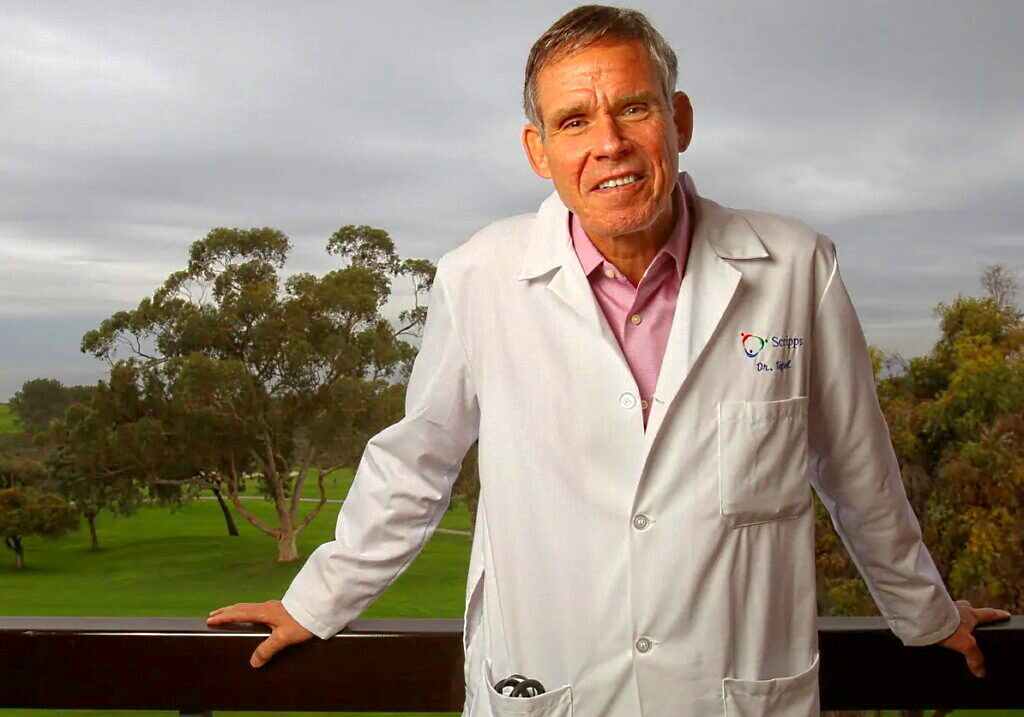Introduction
Dr. Eric Topol, a renowned cardiologist, geneticist, and digital health advocate, has become one of the most influential voices in American healthcare reform. Known for his sharp critiques of the current system and his unwavering belief in the potential of technology and human-centered care, Dr. Topol’s vision goes far beyond fixing what’s broken—he seeks to rebuild healthcare from the ground up. His plan for improving U.S. health emphasizes patient empowerment, data democratization, artificial intelligence, and compassionate care.
This article outlines the key components of Dr. Topol’s plan to reshape healthcare in the U.S., drawing from his writings, lectures, and actions in both clinical and policy arenas.
1. Restoring the Human Element in Healthcare
Dr. Topol often speaks about how the human touch has been lost in modern medicine. With increasing bureaucratic demands, overreliance on electronic health records (EHRs), and shorter patient visits, he argues that the relationship between doctors and patients has eroded.
His solution: Use technology to free up clinicians’ time so they can spend more of it with patients. For instance:
- AI-driven documentation tools can automate charting and paperwork.
- Voice recognition software can assist doctors in real-time without turning away from the patient.
- Telemedicine should be used not to depersonalize but to expand access, particularly for rural or underserved populations.
Topol believes that compassionate care is as critical to healing as any pill or procedure, and the health system must be redesigned with this principle in mind.
2. Patient Empowerment Through Data Access
Dr. Topol strongly advocates for patients owning their health data. He argues that the current system keeps crucial information locked behind institutional barriers. Patients often don’t have full or easy access to their medical records, test results, or even the notes that doctors write about them.
Topol proposes a patient-centric model where individuals can:
- Control and share their medical records as needed.
- Track their health in real-time through wearables and smart devices.
- Access AI tools that can help interpret lab reports or imaging scans.
By empowering people with their own health data, Topol believes patients will become active participants in their care instead of passive recipients. This would lead to earlier interventions, better compliance with treatments, and a more transparent healthcare experience.
3. Digital Medicine and Wearables
As the founder and director of the Scripps Research Translational Institute, Dr. Topol has been at the forefront of integrating digital tools into clinical practice. His vision includes widespread use of:
- Wearables like smartwatches that track heart rate, sleep, activity, and even atrial fibrillation.
- Home-based diagnostics that allow patients to monitor blood pressure, glucose, oxygen saturation, and more.
- Remote sensors that reduce the need for hospital visits and catch warning signs earlier.
This model promotes continuous care rather than episodic care. Instead of waiting for someone to fall ill and come to the hospital, healthcare becomes proactive—aimed at prevention and early detection.
4. Artificial Intelligence for Better, Faster Diagnoses
Topol is an enthusiastic supporter of artificial intelligence (AI) in medicine—but he’s also cautious. He believes AI can:
- Reduce diagnostic errors
- Analyze imaging (like X-rays or MRIs) more quickly and accurately
- Predict medical risks using vast amounts of data
However, he emphasizes that AI should be a tool to augment doctors, not replace them. His goal is to “humanize, not dehumanize” healthcare through technology. For example, an AI algorithm might quickly identify early signs of lung cancer, but the final decision-making and patient discussion should be done with empathy by a trained physician.
In Topol’s view, AI should act like a digital assistant, reducing burden, improving accuracy, and enabling faster care without losing the human touch
5. Genomics and Personalized Medicine
Another pillar of Topol’s vision is the integration of genomics into routine healthcare. He believes that understanding a person’s genetic profile can vastly improve how we:
- Predict disease
- Choose medications
- Tailor treatment plans
For example, some patients may have genetic variations that make them more likely to respond to certain cancer drugs or have adverse reactions to common prescriptions. With genome sequencing becoming more affordable, Topol believes that precision medicine should be a standard part of care—not just an option for the wealthy or those in academic hospitals.
Topol also envisions a system where genomics helps prevent disease altogether by identifying risks early and guiding lifestyle changes to mitigate them.
6. Training the Next Generation of Doctors
Dr. Topol is deeply concerned that the medical education system is outdated and unprepared for the digital health revolution. He believes future doctors should be trained not only in biology and pharmacology but also in:
- Data science
- AI literacy
- Ethical decision-making
- Patient communication
He supports medical school reform to include hands-on experience with digital tools, personalized medicine, and even empathy-building exercises like narrative medicine and patient shadowing. Doctors should learn to work with technology, not compete against it.
Topol also supports greater interdisciplinary learning, where medical students collaborate with engineers, computer scientists, and psychologists to tackle real-world healthcare challenges.
7. Reducing Health Inequities
One of the most important aspects of Topol’s vision is equity. He often critiques the healthcare system for prioritizing profit over people, and he is especially vocal about disparities in access based on:
- Income
- Geography
- Race
- Insurance status
He proposes:
- Expanding telehealth services to underserved areas
- Subsidizing devices and home diagnostics for low-income populations
- Ensuring AI models are trained on diverse data to avoid bias
- Involving patients from marginalized communities in the design of new tools and services
Dr. Topol sees equity and innovation as inseparable, arguing that technology must be inclusive by design or it will worsen disparities rather than solve them.
8. Fixing the Electronic Health Record (EHR) Mess
One of the loudest criticisms Topol has made is of the current EHR systems, which he calls clunky, inefficient, and designed more for billing than for care. Doctors spend hours inputting data, often at the expense of face time with patients.
Topol’s proposal includes:
- Streamlining EHRs with better interfaces
- Incorporating natural language processing so doctors can talk or type naturally
- Allowing patients to access and edit their records
- Making EHRs interoperable across systems, so a patient’s data follows them across clinics and states
He also envisions a shared-care model, where both the doctor and the patient co-own and co-manage the medical record.
9. Building a Learning Health System
Dr. Topol believes that the U.S. needs to transition from a static healthcare system to a learning health system—one that constantly evolves based on data and feedback.
In a learning health system:
- Every patient experience contributes to research
- Treatment outcomes help refine future care protocols
- AI tools learn and improve over time
- Policy adapts quickly based on evidence
Topol supports real-time data sharing between research institutes, hospitals, and public health agencies to drive continuous improvement in healthcare delivery.
10. Addressing Burnout and Physician Wellbeing
Topol has consistently raised alarm bells about physician burnout, which affects more than half of U.S. doctors. He attributes much of it to:
- Administrative overload
- Long hours with low autonomy
- Frustrating digital tools
- Lack of patient connection
To combat burnout, Topol recommends:
- Delegating administrative tasks to AI and support staff
- Giving doctors more control over their schedules
- Providing emotional support and peer networks
- Reinvigorating medical practice with purpose and meaning
Topol views clinician wellness not just as a labor issue, but as a patient safety and system sustainability issue. Happy doctors make better decisions and form stronger relationships with patients.










